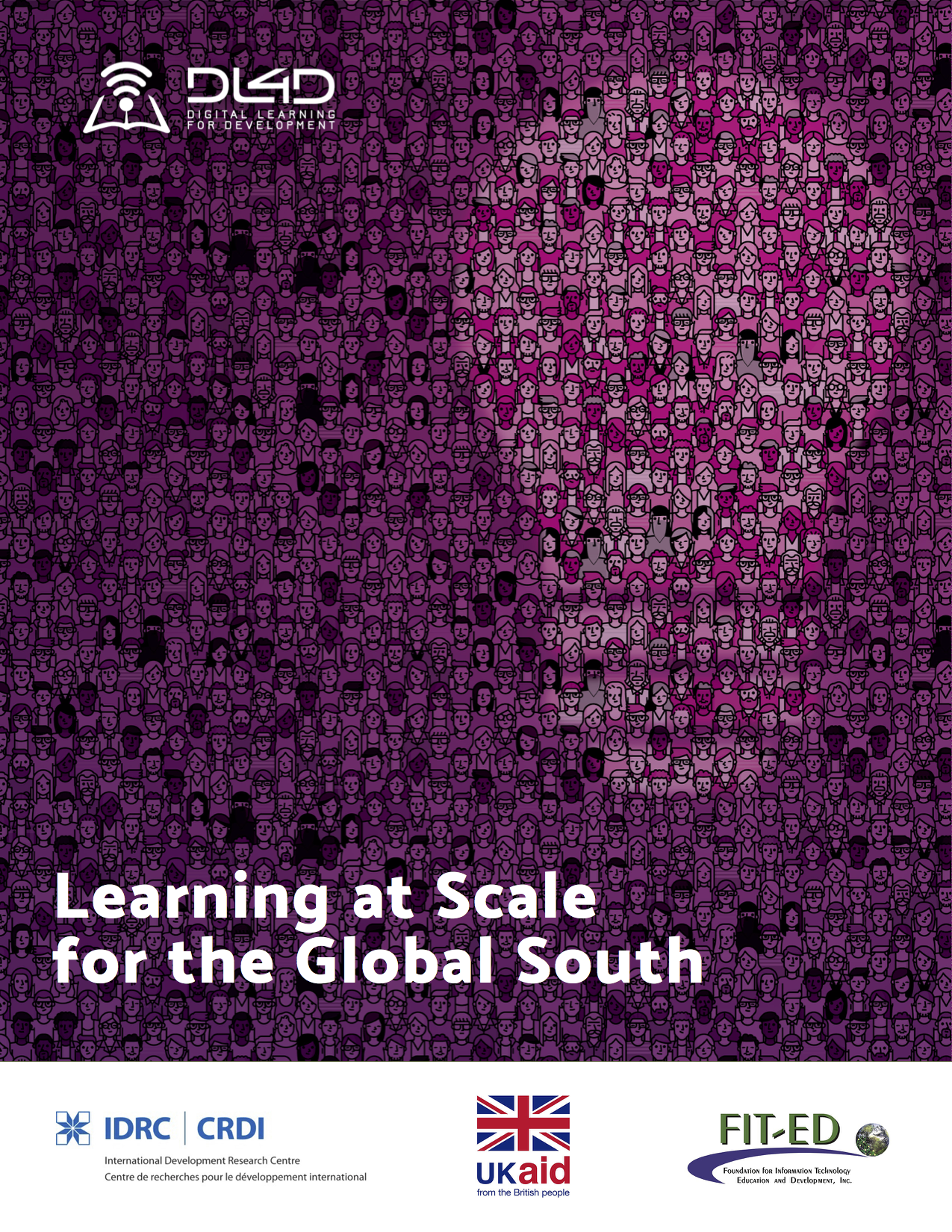Learning at Scale for the Global South
Abstract
Learning at Scale for the Global South

Over the past two years, DL4D has brought together leading international and regional scholars and practitioners to critically assess the potentials, prospects, challenges, and future directions for the Global South in key areas of interest around digital learning. It commissioned discussion papers for each of these areas from leading experts in the field: Diana Laurillard of the University College London Institute of Education, for learning at scale, the subject of this compilation; Dragan Gašević of the University of Edinburgh Moray House School of Education and School of Informatics, for learning analytics; and Chris Dede of Harvard University, for digital game-based learning. Each discussion paper is complemented by responses from a developing country-perspective by regional experts in Asia, Latin America, Africa, and the Middle East.
Learning at Scale for the Global South considers how and to what extent the unique affordances of digital technologies may be leveraged by developing countries to achieve quality learning on a large scale. “How Could Digital Learning at Scale Address the Issue of Equity in Education?” by Diana Laurillard (UCL Institute of Education), Eileen Kennedy (UCL Institute of Education), and Tianchong Wang (The Education University of Hong Kong) focuses on online methods for formal learning via open universities, distance learning courses, Massive Open Online Courses (MOOCs), and courses from private providers as a type of learning at scale; considers the extent to which online learning at scale achieves equity, the issues this raises, and the policy actions needed; and clarifies how greater quality at low cost through greater efficiency might be achieved, given the characteristics of online learning. Mary Hooker of the Global e-Schools and Communities Initiative in Kenya and German Escorcia of Knoware in Mexico consider the proposals of Laurillard, et al. from the particular context of their regions, including (mis)conceptions about online learning; barriers to quality online learning; available digital learning infrastructure; the status of the teacher and teacher professional development; and quality assurance and institutional accreditation.

